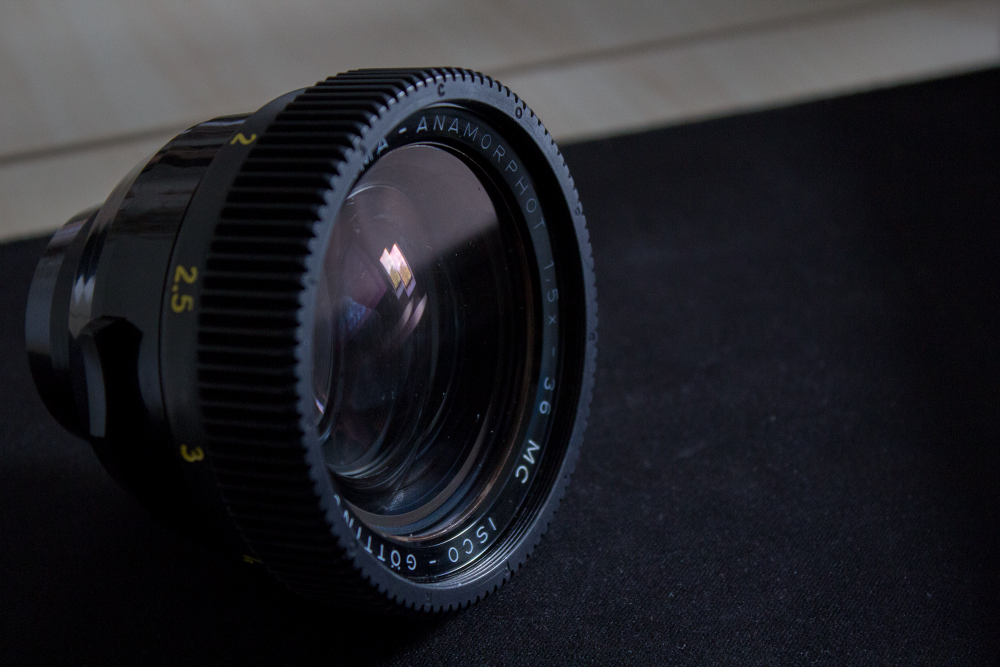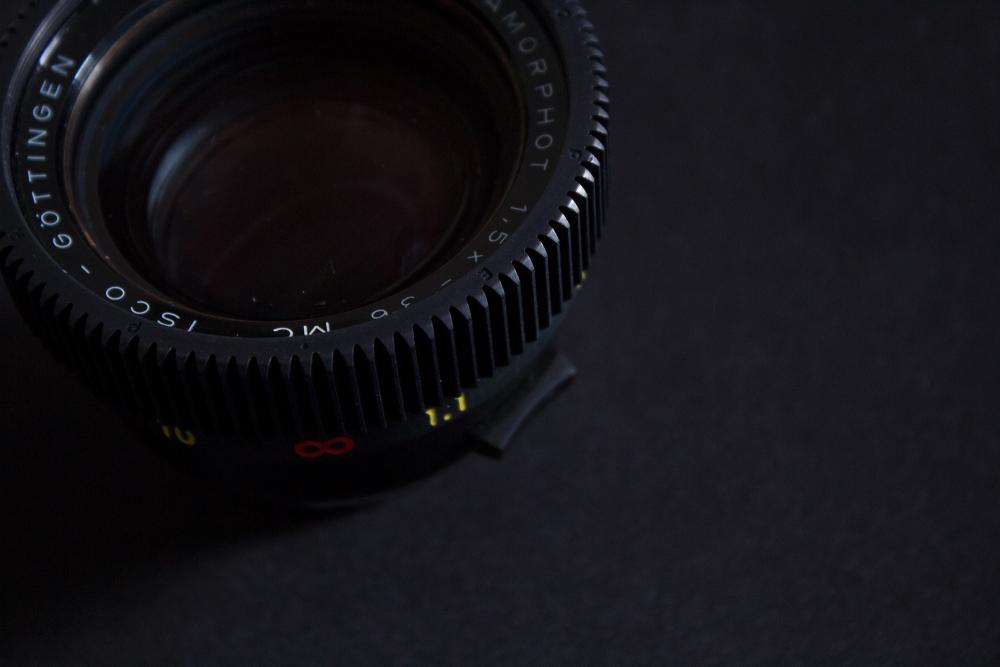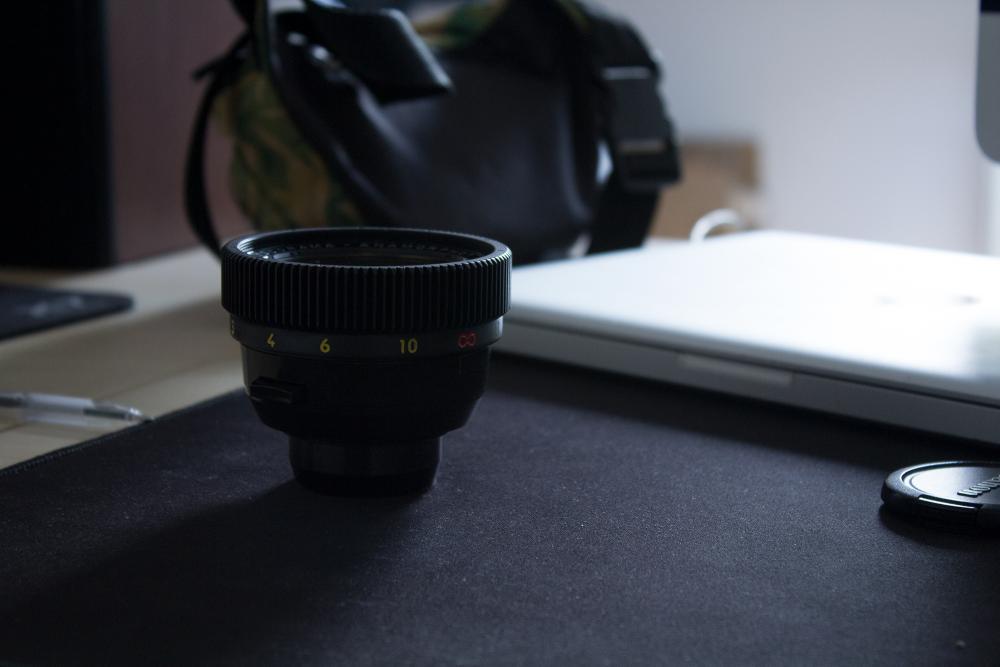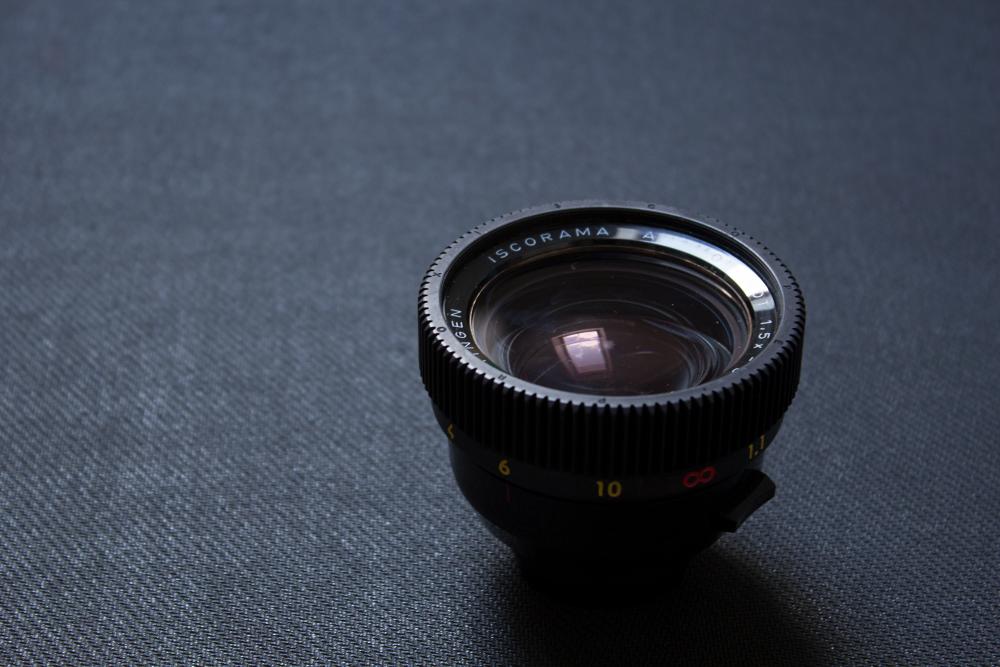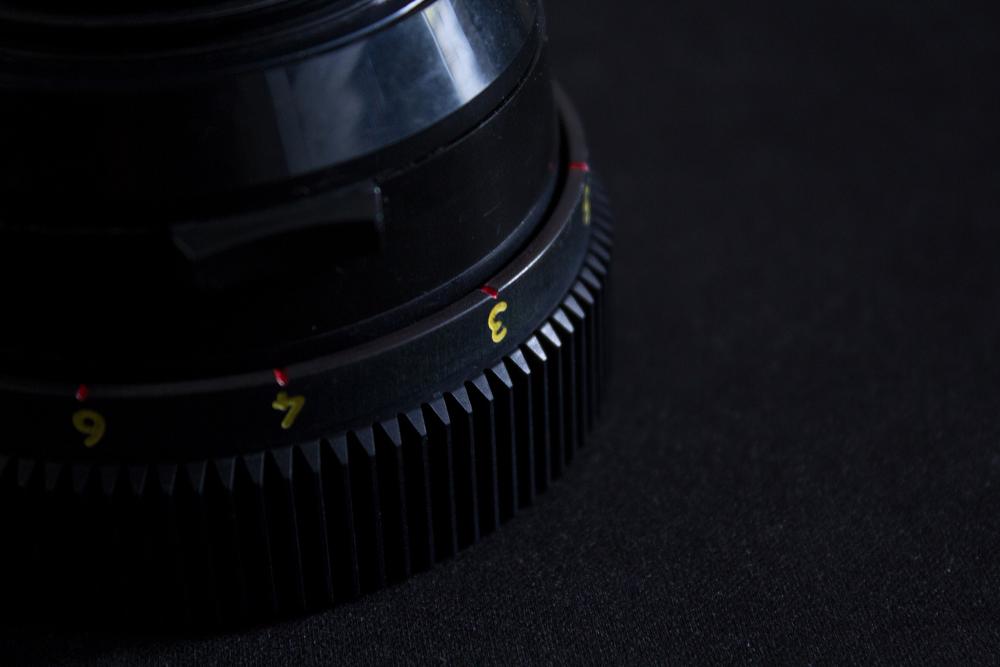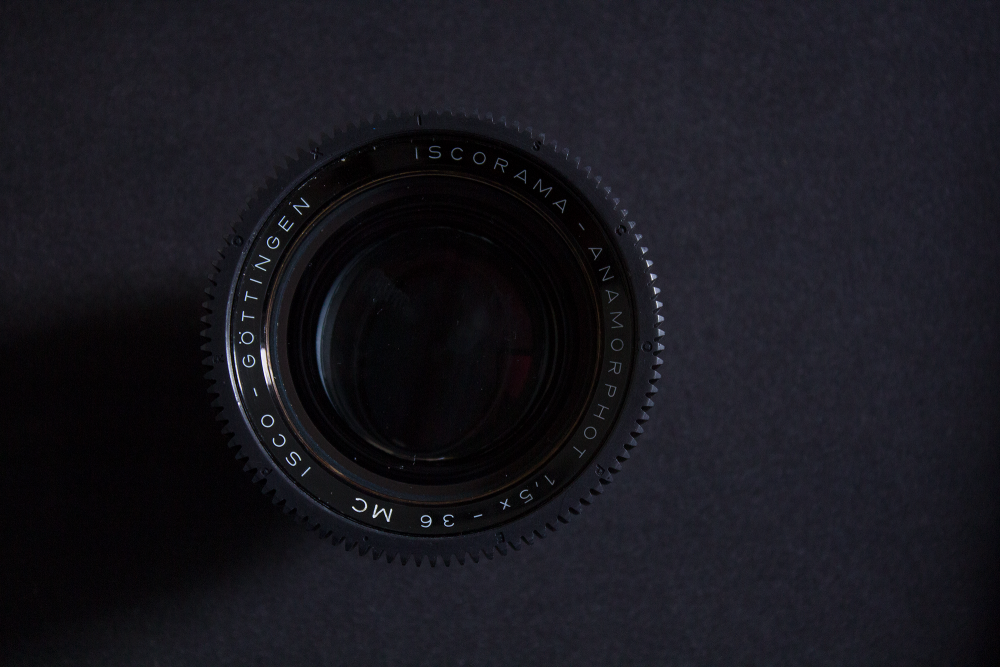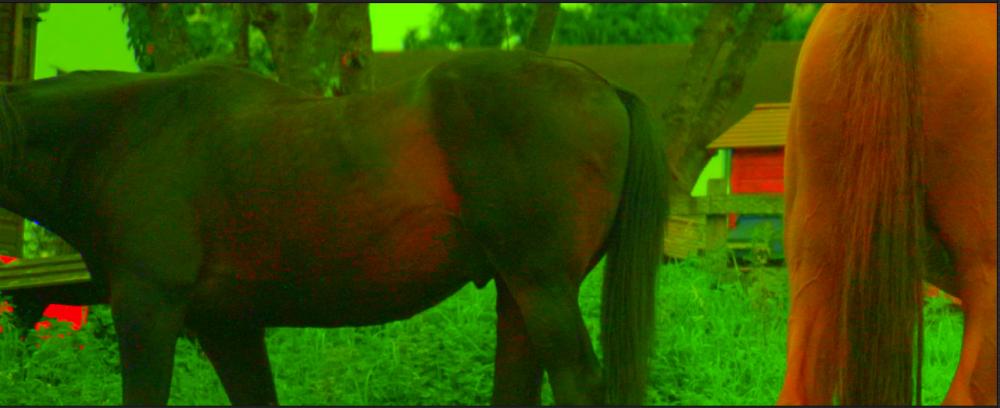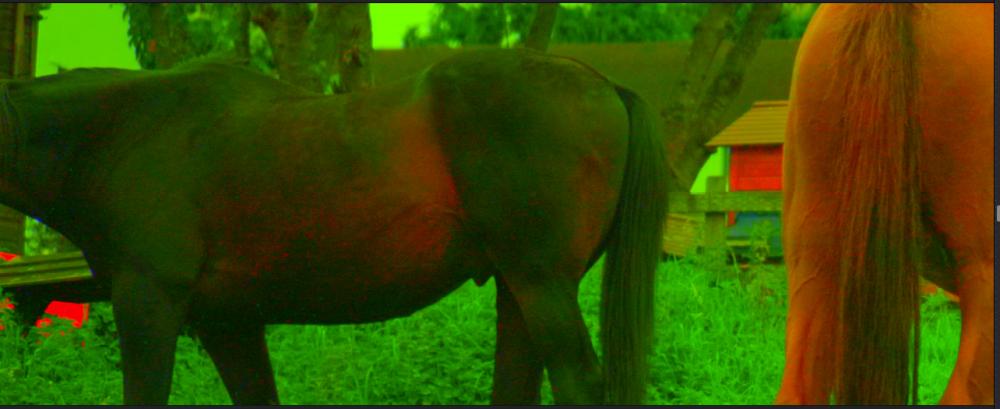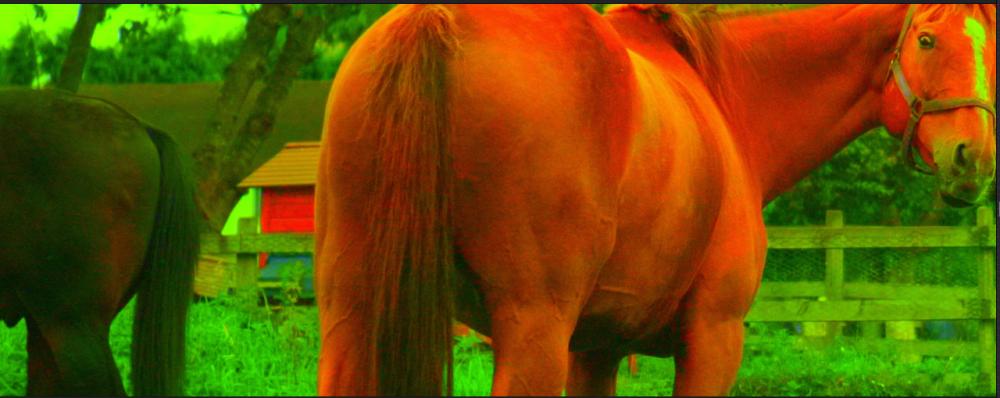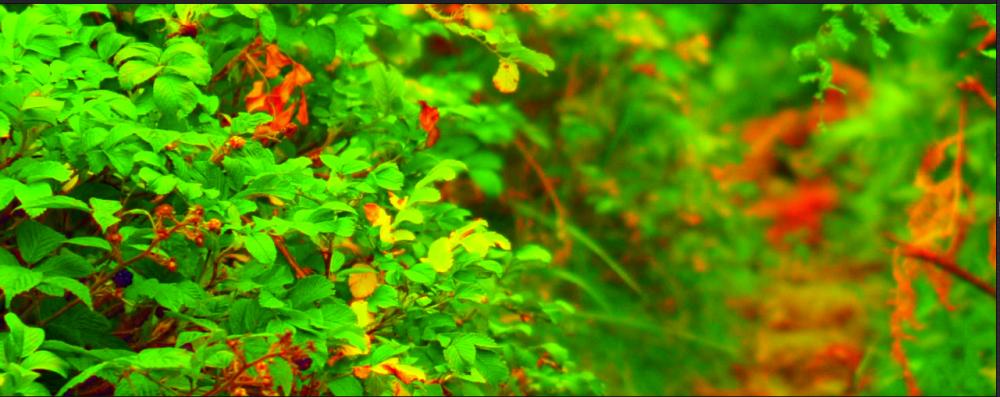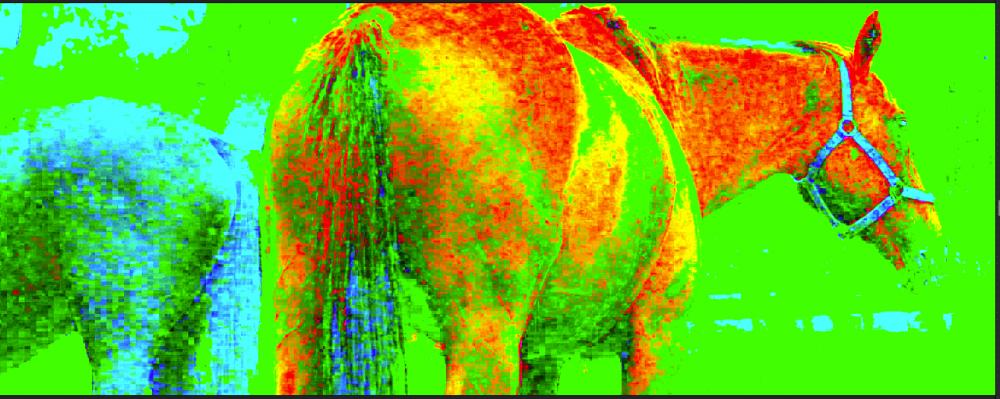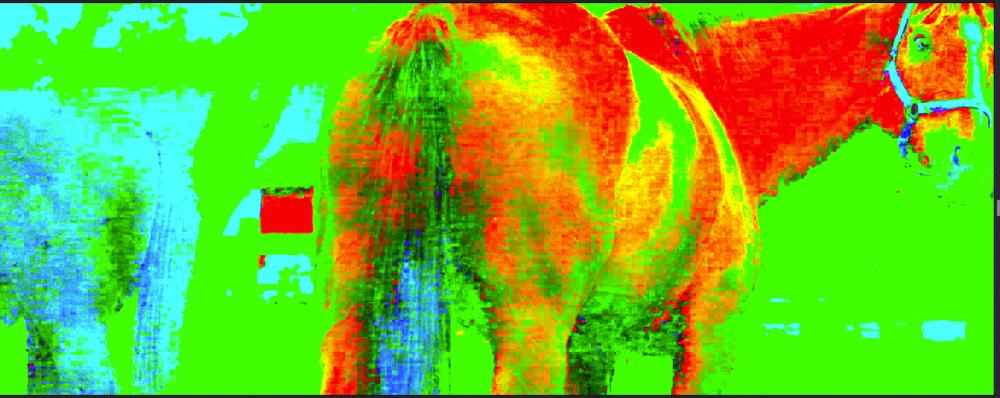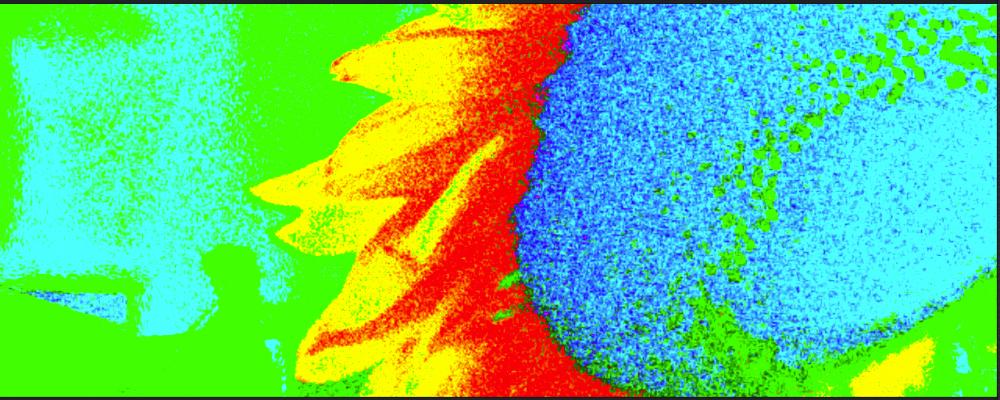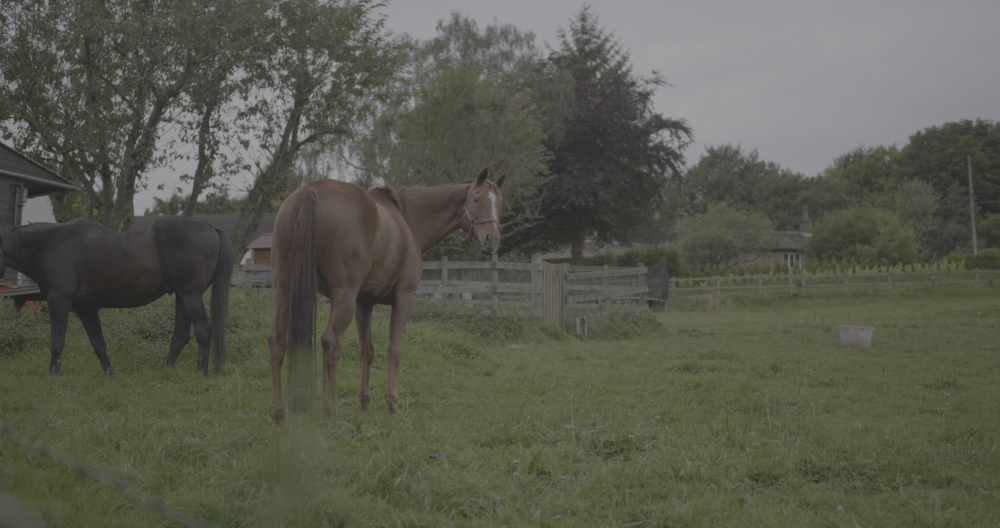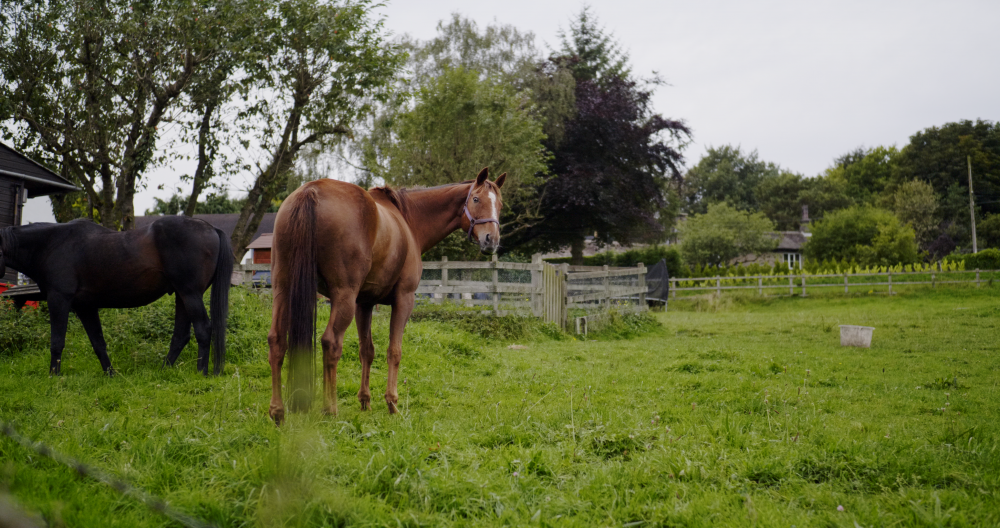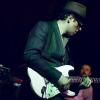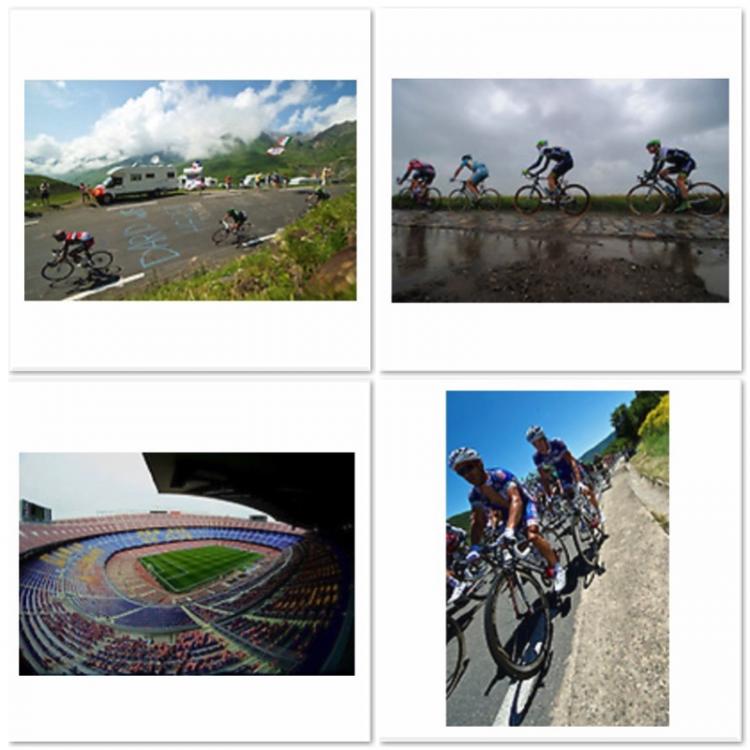Leaderboard
Popular Content
Showing content with the highest reputation on 09/03/2017 in all areas
-
How to Take Advantage of Our Entirely Saturated Market and Make Money
pryde and 3 others reacted to HockeyFan12 for a topic
Eep, I’m not sure exactly what to write. A lot of this is on a case-by-case basis. A few things I’ve found useful for corporate work are: When shooting talking heads, light primarily with an offside 3/4 book light close to camera that serves as both eye light and key and then put some negative fill on the other side of the face just off-camera. That way you can get both soft light and contrast and dial in any skin correction in post or with a promist filter. If you do choose to use a fill light (a hair light, diffused of course, could also help) keep it very soft and from camera direction, not 180º away from the key, to maintain shape. Keep both lights approximately at camera height to avoid raccoon eyes. Overlighting is fine... if you're then removing light–doing the HMI through every window thing or Kino Flo in every corner and then turning off or dimming anything that’s behind the camera so you’re always working with a backlit scene or an offside key. I spoke extensively with Phil Abraham about how he lit the Sopranos and the approach to many interiors was rather DIY. On sets they had huge banks of dozens if not hundreds of 60w incandescent lights above the stage (facing 40º down toward the talent) that functioned as soft backlights and offside keys. Each corner of the room had one pointed toward the middle of the room. Only the lights in front of the camera were turned on. Anything behind the camera was turned off. Of course, there were also practicals and bounce cards for fill. When they turned around, they’d just flip which lights were on and which were off so it was always backlit/side-lit. At least that was the basic approach that was fined tuned with smaller units. That's for the interior sets but you can use the same techniques on locations with high ceilings. You can do the same thing even in a corporate setting even for b roll even when you see the ceilings. Cameras are so sensitive these days and color correction so powerful that lighting with practicals is fine. Say you have a room being lit with overhead fluorescent lights. If you want some shape to the room, just use the switches in the room or flags or trash bags or whatever to turn off or flag off all the lights behind the camera. Then you’ll get the natural light working as a soft offside key. If you want to light talent standing in front of that so that their faces aren't dim, just use the same principles as the book light/negative fill combo (maybe a lone LED heavily diffused and as close to the talent as you can bring it, dimmed down a lot, and then negative fill on the other side just off camera). Bring CTO/CTB and plus and minus green to match the LED to the practical lights. Remember, the softness of the light correlates with its perceived size by the subject. A 4’x4’ light at 4 feet will be as soft as a 1’x1’ light at one foot (though the falloff will be quite different). One good trick to get a DIY book light for interviews is to first take a 1x1 LED panel and diffuse it with a piece of 216. And then gel it to match the color temperature of the space. Set is aside. Then take a c-stand and hang a 4’x4’ piece of diffusion (I like 216 or half grid cloth) and bring that wherever you’d want your book light to be. This will be the front of your “DIY” book light. You can easily hang 4’x4’ diffusion that functions just like a 4’x4’ frame just by keeping cuts of it around rolled up in a trash can or box and then extending the c stand's gobo arm so it's parallel with the floor and raising it up and then hanging the cut of diff from number 2 clamps at the top corners. You’ll have to weigh down the bottom corners with a clamp at each corner, too (number 2 clamps). Then position the LED behind the DIY frame and use barn doors to reduce spill (a true book light would have a tent of flags around it, but that’s slow) and turn it on. Move the light until the LED is just far enough to evenly illuminate the 4’x4’ frame. Then dim the LED to adjust brightness. Quick and easy book light and you can store that all in a small car. Don’t be afraid to use flags and nets. If you’re using soft light, just bring flags. You can dim soft light with solid flags and it won't change the shape too much. Buy lights and play with them. Learn on set, but just shoot stuff for fun whenever you want to try a new technique. For narrative, if not storyboarding then at least defining the axis of action clearly can help. As far in advance as possible. Because this will let you place your key light for most of the scene (in theory). My friend who worked with Deakins described his approach as being too time-intensive to replicate on an indie scale, so I won’t bother describing it. One approach he really liked that can be replicated on a small scale is Elswit’s. He would often have a hard key light or back light 3/4 to camera then carry that with a much softer source that blended into it in terms of color temperature and direction, maybe 45º or less rotated toward camera. So he could get a lot of contrast in a scene and always get an exposure on the face by sort of modifying the Ridley Scott Blade Runner look of using a single source, but then sort of softening that source by using it to motived the fill. Filling from key direction, not from the opposite side. (But still tweaking with bounce boards etc. for the close ups). That also lets you do fewer light changes between set ups if you basically only have one direction where the lights are visible and you can’t point the camera. Then you can use a common technique for exteriors and cheat your close ups by rotating the actors rather than moving the lights. This technique is of course great for day exteriors. Shoot with the sun behind you. Rotate actors a bit so the backlight then becomes an offside key for their CUs. You can use bounce cards etc. too. If there’s not too much wind and you’re shooting really close like CU or XCU or something, you can do the c stand trick to hang a weaker diffusion (251 or something) between the subject and the sun to soften the sun light a bit. Or for overcast days, bounce light using a 4x4 bead board silver side (or silver reflector) to create a subtle offside key and use negative fill camera side, for instance, to shape the key further. Or bring a battery-powered LED with you. Scout. Mirror boards are brighter than 18k HMIs. They’re fairly expensive to buy and heavy as hell, but on an indie budget they’re very affordable. Bounce one of those through a window and move it. Maybe put some diffusion against the window. Easy way to get a cheap big gun in day interiors. But you need to time things up so the sun is in the right approximate place. So always scout the sun path for day exteriors and even interiors if you have time. There are apps like Helios that help. That can save you money. But of course if you’re not set on shooting in one direction or the other you can follow the same principles on the fly. I dunno, that’s about it. Also, when in doubt, diffuse your light. Especially lights behind the camera. I like hard light but if I see more than one hard shadow on a wall I know someone screwed up. One hard light is usually enough, but since so few people use hard light these days it can be cool. Oh, and look for darker walls to shoot against. White walls make lighting so much harder.4 points -
Hey! Someone created a new channel with those vids. They call it cinematography database fan: https://www.youtube.com/channel/UCtTjh6GOn218KbjhF8mtFLA/videos4 points
-
It's very confusing to me that some people think low light performance = no need for lights. As if the only thing lights do is provide exposure levels? Honestly, light is pretty much everything. Way more important than any camera.4 points
-

How to Take Advantage of Our Entirely Saturated Market and Make Money
NX1user and 2 others reacted to EthanAlexander for a topic
Couple weeks back I read a blog post by Alister Chapman about how the term DP has become meaningless now that anyone with a $1000 or even less can buy a camera and advertise as being one. (http://www.xdcam-user.com/2017/08/when-is-a-dp-not-a-dp/) and it got me thinking. I started paying attention to the people I'm seeing on social media in a different way, and noticed that damn near three quarters of the work I see involves no lighting. I see productions with UMPs, matte boxes, cinema glass, huge monitors, etc., but not a light to be found! I mean, hell, I had one client not too long ago who was surprised I had any lights at all, which says a lot. In fact, I think it's reasonable to say that the huge dynamic range and great low light ability we can get on cameras these days is killing the "need" to learn any kind of lighting. In many ways, I find this frustrating, simply because I've been trying to learn as much as I can about lighting for narratives and there's very little to be found on youtube and the like, at least compared to the billion videos entitled "how to make your videos look cinematic - Use these camera settings." The videos I do find are limited mostly to "3 point interview lighting." But here's the good thing - Because there are so many people who know NOTHING about lighting, it's not hard at all to stand out! I'm sharing this post because for the past couple month I've been doing all kinds of tests with lighting setups while I've been learning from Shane Hurlbut's Inner Circle site and it's already made me stand out to one of my clients and gotten me in with a group of filmmakers I've been wanting to team up with for a while. I hope that anyone on this forum that is looking to make money with video buys some lights and learns and experiments as much as they can. It's really the best way to stay ahead of the curve in this super-low-barrier-to-entry world. (ALSO, I'd love if we could have a lighting section of the forum. Or at least a thread in the shooting section. Would that be acceptable?)3 points -
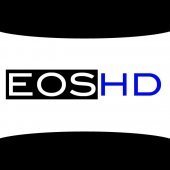
LG V30 HDR Camera
deezid and 2 others reacted to Andrew Reid for a topic
I think this phone is in Berlin at the moment at IFA. I'll have a look on Monday.3 points -

How High An ISO Will You Go On Your GH5???
jonpais and one other reacted to Mark Romero for a topic
After discovering that gravity, concrete and a faulty ladder are bad for an a6300 (not to mention for an ankle) I am in need of a new camera. So of course I am looking at the GH5 because... well... it's a GH5. Or getting an a6500 For those with a GH5, how high of an ISO will you go before you really start NEEDING noise reduction software / plugins? How high will you go if you DO use plugins / NR software? And is the GH5 a good camera if you want to do MINIMAL post processing? I know that the ability to record in 10-bit is great for grading. But what if you want to avoid grading (but need to do color correction because no one nails white balance in camera... especially if you will be dealing with a lot of mixed lighting like tungsten, daylight, and fluorescent all in the same shot) I would be using it fro real estate videos and I need something quick, easy to use, good dynamic range, good stabilization (will be on my Zhiyun crane), and decent enough HIGH ISO performance. The thing is, I will only be getting about $300 for a finished two-minute video. So I can't spend hours grading it / color correcting / stabilizing etc. I need something that is going to require minimal massaging. Thanks in advance.2 points -
Panasonic Leica 12-60 Firmware update
sgreszcz and one other reacted to Fritz Pierre for a topic
I went with the Tiffen Indy Pack of ND's all at 77mm and I have to say I could not be happier with them...I use metal flared hoods to standardize all my lenses to 77mm...My bigger Nikon AF-S zooms are already there, and a couple of cheap sets of step up rings, combined with the flared metal hoods work perfectly...good ND's are expensive...lens hoods are not...and they're dirt cheap on EBay! PS...I own the PL12-60 and shot my daughter's 6th birthday party on a GH4 (non IBIS camera) using only the lens stabilization and all looks great and steady...everything was handheld....I bought this lens with the Focus Transition feature on the GH5 in mind as an afterthought,but it's never off my camera...and to put the speed of the lens into perspective...compared to the 12-35 Panny, it's only 1/2 a stop slower at 35mm and you still have 25mm of reach left!2 points -
That's what I'm thinking, thanks for the feedback - especially since I remember you weren't keen on the PL12-60 zoom when it was released. I use the breakthrough photography NDs 3/6 stop (sometimes 10 for timelapse) and until now I've been keeping all my lenses under 58mm using step ups and the xume magnetic adaptors to pop on/off filters. With the faster PL12/1.4 and 42.5/1.2 available I've been back and forth about selling my Voigtlander 17.5 and 42.5 lenses and just going with the PL12/1.4 and PL42.5/1.2 for indoor/low light, PL15/1.7 (and maybe 42.5/1.7) for travel and the PL12-60 for events. It might be easier to go all PL and autofocus but when I look at the museum shots I got with the V17.5 in the documentary I'm completing, it is hard to let them go. WEX in the UK has a trade in/up to the GH5 going on so I'm not sure what they'll give me for one of my GX80. I'll keep one gx80 for my bcam to gimbal cam.2 points
-

Panasonic GH5 Review and exclusive first look at Version 2.0 firmware
Juank and one other reacted to Andrew Reid for a topic
All you have shown is that the GH5 is unsuitable for EXTREME GREEN backgrounds and SHIT looking images. Anyone can break a file. I can break the Alexa's files!2 points -

LG V30 HDR Camera
deezid and one other reacted to Andrew Reid for a topic
The LG screen is probably fine in normal use. If it has uniformity and grain issues in certain situations then fine, good to know. Important to get it in perspective though, with how you actually use the phone. It is going to be a very very bad device for viewing flat grey surfaces in the dark that's for sure! On the camera front, I'd wait and see what the Google Pixel XL 2 brings as their image processing has been far superior to LG's so far. The current XL quite simply has a wonderful processor and sensor. It was a tough choice for me between that and the S8+ The S8+ won it in the end because of the screen and better raw images. To look at what the Pixel XL's processing did to the raw image data... it's a miracle transformation. And I fully expect XL 2 to have 10bit video and HDR if LG are making it... but for some reason I've never really got into video on smartphones that much... why bother, when you have so much else to play with that's far nicer? I am into smartphone photography on the other hand, as sometimes the best stills camera is the one you have on you. The best video camera on the other hand, is the one you make the effort to bring to a specific occasion!2 points -
How to Take Advantage of Our Entirely Saturated Market and Make Money
NX1user and one other reacted to HockeyFan12 for a topic
I guess it's my misunderstanding then. What I mean is that I've noticed a trend toward over-lighting and using power windows to cut the image rather than flags and negative fill. I blame it more on fast schedules and recent trends toward soft light (and an over-reliance on power windows) than on bad DPs... after all, often it's the gaffer, not the DP, designing the set up, and everyone seems to light like this these days so of course they're gonna approach things this way. And to be fair to DPs, if that's the look clients want, it's what they're going to try to get. But I do agree that setting yourself apart from that is a great idea. IMO, if you have an M18 out every window or a soft M90 or Mach Tech on every corner of the room, which is what most people seem to do these days, everything will look pretty good and you can make minimal adjustments, but it will always look a little "flat"and indecisive. Not that it looks bad, just that it looks a little "safe." But to me that's over-lit, not underlit, even if there's a lack of contrast. IMO it's a trend toward "lighting the space" rather than "lighting the frame." I agree with you to the extent that I prefer the 1980s hard light look, artificial as it was. But it was a lot slower and required vastly more preparation. For certain scenarios, though, it's unavoidable. As much as I criticize the approach, sometimes it's easier to blast a space with light than it is to gel every window and approach it more "artistically" and selectively. I have a few techniques I've learned that I think are helpful to avoid this tendency but it's not worth getting into them here. One area I do agree that there's too little lighting is in day exteriors. Contrast the look of Jurassic Park's exteriors to anything today. But I can't say I really miss this style as much. It looks a little cheesy and that was a product of older film stocks lacking shadow detail. I do agree that day exteriors are if anything, often underlit, today. But imo unless your budget is pushing you to move like crazy, it's easier to just schedule around the best light and use negative fill and bounce rather than setting up an 18K HMI or something, plus who can afford that on a small budget? I did work with one DP who just surrounded dialogue scenes during the day with huge diffused HMIs. There was one tucked in every corner, including a 12k. I'm not sure he placed them very carefully but I have to admit it looked great. Sure, it was over-lit, but it worked, and made the faces sort of pop and shine and you got nice catch lights, too.2 points -

Magic Lantern Raw Video
BTM_Pix and one other reacted to Zak Forsman for a topic
brought my 5D3 with me to South Carolina for the eclipse. A few days later, we got some rain and I snagged a few shots.2 points -
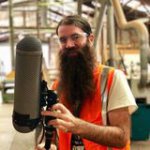
How to Take Advantage of Our Entirely Saturated Market and Make Money
EthanAlexander and one other reacted to IronFilm for a topic
I've been pondering over the thought that a better path to becoming a high quality DoP in the future is not by struggling up through the camera department, but instead via the lighting path. And on a related point, perhaps there is a better opportunity to make money as a gaffer than a camera op? (as cameraman is such an oversaturated area, especially at the low end)2 points -
In my eyes, it's all about light - direction and quality of light, depending on the look & feel you want to get. Diffusors, reflectors etc. are not the most expensive, but they will make the difference. Sure, good low light capabilities are very important for a camera setup, when you don't want to miss a moment. But the light makes at the end of the day the difference. Most self proclaimed DP are too lazy, even for this...They call their work "available light photography/videography"...For "never miss a moment" style it's OK - but not generally. My mentors teached me to work with off camera flash (in photography) and to use sophisticated setups for getting great results - every little shadow and every even small movement of light and subject counts. Most "filming entuasiasts" don't care about light? Great for those who do.2 points
-

Interesting Hands On Report From Panasonic EVA1 Event
Juank and one other reacted to EthanAlexander for a topic
The GH5 is a compact sedan with a ferrari engine in it but sometimes you need the whole ferrari. In this case, that means the features and form factor of a real video camera. Against Canon and Sony in the price range, this has dual native ISO, 5.7K sensor for both oversampling and eventually 5.7K raw, 2K up to 240fps, electronic stabilization, and a lighter body. Having said that, the EF mount really kills the draw for Sony shooters who have been speedboosting or using PL. This is the single biggest drawback they could have easily avoided.2 points -
Iscorama 36 Proxiscope rehousing – close focus and cine gears
Tito Ferradans reacted to redimp for a topic
Hey guys, I wanted to share this rehousing mod I made recently for my Iscorama 36. It's a replacement for a front piece of old plastic housing, that is made of anodized aluminum and has cine gears, retaining 72mm front filter threads and adding just 50 grams of weight. It took me quite some time to figure out this design and I'm pretty proud of it! It solves some real-world problems like close-focus, enabling you to focus down to 1.1m, but unlike DIY mode it has a hard stop at 1.1m and infinity, and looks way nicer then a grub screw drilled into a hole. I made a little video explaining what it is, since after I posted this on facebook people started asking what it does and what are the specs, and asking how to buy one. https://www.dropbox.com/s/wd1w620ddxnv2je/proxiscope.pdf?dl=0 I have decided to order a small batch of these, and already placed an order at one of the shops that does the first stage of the milling. I will make another video showing a closeup process of swapping the housings, so people can evaluate the effort and see if the price (which will be announced at the same time) is right for them. This is intended as a do-it-at-home kind of mod, but you can also take it to the nearest photo technician and they'd be able to do it for you, it's a simple process that takes 3-5 minutes to perform. I also made a PDF with some specs, you can find it here. https://www.dropbox.com/s/wd1w620ddxnv2je/proxiscope.pdf?dl=0 If you're interested in getting one – shoot me a message and we'll figure it out, there's a little queue forming already1 point -

LukiLink project turns smartphones into an HDMI monitor
tweak reacted to Andrew Reid for a topic
If, like me you have ever wanted to use the OLED screen of your lovely thin and light smartphone as an HDMI monitor for your camera, you are now officially in luck. The LukiLink will give you that long-awaited HDMI input. Read the full article1 point -

Arri Alexa Mini is da bomb. Music video directed by Dave Altizer
EthanAlexander reacted to Dave Maze for a topic
Music video I directed just went live! Shot on Arri Alexa Mini with Cooke S4/i glass and it was a pleasure to use! I'm always taken by the Alexa image every time I work with it. Wish I could afford to use one every time I shoot! directed by Dave Altizer produced by Jarad Clement director of photography Chris Adams edited and color graded by Jarad Clement here are some BTS shots1 point -

Panasonic G7 Picture Profile Comparison
Emanuel reacted to Matt Kieley for a topic
I wanted to see which Picture Profile on my G7 give the best skin tones, as well as the general differences of each one. All profiles are set to -5 Contrast, -5 Sharpness, -5 NR, -1 Saturation (except Vivid which is -2). The only grading is a contrast curve (I also added grain). Lens: Canon FD 28mm 2.8 w/ Focal Reducer (shot wide open). Shot in 4K, 500iso, 3200k color temp. CinelikeD seems to yield the flattest image and maybe the most dynamic range, and it's the profile I've used the most for that reason, until now. I kinda think CinelikeV might have better skin tones. Aside from Vivid and Monochrome, most of the others barely look any different from each other. All of this is subjective of course, but I thought other G7 uses might be interested.1 point -
Lovely new firmware to try out from lovely Panasonic! http://av.jpn.support.panasonic.com/support/global/cs/dsc/download/fts/index2.html 2017/8/7 Ver.1.1 Fixed the instability of Auto Focus. Improved the performance of O.I.S.(Optical Image Stabilizer). - The lateral stability seems to now match the vertical stability a bit better, ie. better for walking (and everything). The AF thing was when focusing on a stable target the background would pulse a little under some conditions. This fix means I should be able to 1-area touch AF with, um, more stability after achieving target. This has been a very encouraging process as they forwarded my material and concerns to the factory and gave feedback on their response. Very impressed.1 point
-
1600 is my max, 95% of the time... 3200 in a pinch. Nothing higher though.1 point
-
Haha, classic game, played in the late 90ies though. My favorite game is the all time classic. Awesomest platformer I ever played. Okay, back to the OST. Thanks guys. No easy task it was but your answers helped me to decide for a rearrangement of the Suzuki track. A musician I know is hopefully going to do it as a favor for a favor:) very unsettling it is!:)1 point
-
It really is super having the wider range of the PL12-60. Balances well on the zhiyun gimbal. I have the Syrp super dark variable for it but I suspect the Fritz option is better. The super dark covers super bright conditions but is too much for dusk.1 point
-
Sure, maybe in five years time I'll be visiting Berlin? ha :-P Sorry, no immediate plans at all to go to Europe currently :-/ Yes, that is an excellent looking article!1 point
-
From the specs: "F-number (Maximum Aperture) F4.0 (Fixed)" That's why. Does the GoPro have fixed aperture? yes. Does the Sony X3000 have a fixed aperture? yes. If we are going to start flogging alternatives, then the Yi 4K+ should be listed: its is the only action cam that can do 4K 60p (at 135 Mbps), and it does not overheat even close to what the GoPro's and the Sony X3000 and Rx100 V do, and I am sure the RX0 will do. The Yi 4K+ has the latest Sony 1/2.3" sensor and the latest 14nm Ambarella processor (heat efficient and fast). https://www.yitechnology.com/yi-4k-plus-action-camera1 point
-

Magic Lantern Raw Video
mercer reacted to Zak Forsman for a topic
no this was with a Leica Summicron-R 35mm.1 point -
Too bad they never really fixed the same on the 35-100/2.8. The only thing that made it better was the IBIS starting with the GX80. Was looking for some feedback on this lens as I'm considering selling a gx80 and my p12-35 and 35-100 lenses for the gh5+Leica 12-60 combo. For events it would make things easier than juggling two gx80 bodies. Downside is that I will need a bigger ND size for the 12-60.1 point
-
Let me be the party pooper… Vlog ALL-I is massively flawed! At least if I go be the files Andrew made available (@Andrew, thanks for sharing). I noticed dancing spots in the flank of the darker horse. This is usually seen in the darker areas of footage, due to compression algorithms that shouldn’t be there in the first place (My opinion. No change you will ever see this on phenomenon a BM camera. It comes standard with the GH4 …and now GH5)…and we are looking at ALL-I no, with compression methods better than ProRess according to Mat Frazer. The problem with these noise clouds is that they do not respect the boundaries the live in. Intensity and shape changes per frame. See in the pictures below. And then I noticed something different. Horizontal stripes We are not talking about a little bit of compression here we are talking about a massive amount of compression, mimicking some kind of interlace. Then checked a ‘standard color’ example with one extreme node, no “interlace”, just looked fine… Actually pretty good! Back to the standard horses with 2 nodes applied, to make it even more extreme and visible. Notice how the red parts follow the direction of the tail (as it should). And the Vlog version with it’s horizontal stripes. This btw what footage of the BMPCC looks like, under the same treatment. See how you don’t see huge blocks of compression as we can see in the GH5 foortage? In all fairness it's Raw, but ProRess HQ 422 looks just as fine. All screencaps were taken at 100% My advice if you didn’t buy a GH5 yet, but do want one …don’t buy the VLog upgrade. For anyone that already did buy a GH5 and the Vlog upgrade …file a bug report as this has to be a bug. That or some developer code was added by accident instead of the finished product. If it turns out that this is the finished code and you need Vlog like footage …there are plenty of other camera options out there.1 point
-

Panasonic GH5 Review and exclusive first look at Version 2.0 firmware
Francisco Rios reacted to Cinegain for a topic
https://geizhals.eu/panasonic-dmw-sfu1-updateschluessel-a1567852.html -> https://www.cyberport.de/?DEEP=7116-1A7&APID=14 (online) & Via:1 point -
I'm so frustrated with Panasonic that they didn't choose to use a locking MFT mount!! Or at least a sub-PL mount like Kinefinity does. http://ironfilm.co.nz/what-if-kinefinitys-kinemount-became-a-universal-cinema-mount/ Exactly, and you could still beef up the MFT mount while keeping it MFT! And you could make a positive locking MFT mount. Making it even more desirable for professional users.1 point
-
Mmmkai. '10-bit HDR Image Sensor'. ~ http://www.lg.com/us/mobile-phones/v30 Though, that doesn't necessarily mean video is being recorded in 10-bit of course. But they do put a lot of focus on 'Cine' 'movie-quality' 'pro' 'Log'... but then again, that reminds me of the E-M5 Mark II press release that didn't even mention the word 'video', only terms like 'professional' 'cinema' 'film'... and who's been picking that one up over an Panasonic, Sony, etc? At any rate... it's a smartphone, it's cool if it's actually any good, but you'd probably still pick the right tool for the right job and more than likely, that's not a smartphone.1 point
-

Panasonic GH5 Review and exclusive first look at Version 2.0 firmware
JordanWright reacted to Rand Thompson for a topic
1 point -
From Wired... "Both have super-bright f/1.6 lenses, and 10-bit HDR sensors."1 point
-
The music for the Amiga game (late 80s) Xenon II Megablast was almost the same as the AOP13 theme. I think they just changed it a bit here and there.1 point
-
Have a browse through these, some of which ('Kingdom Of The Japanese' and 'Oriental Landscapes' for example ) might be in the ballpark for you. https://www.proudmusiclibrary.com/en/tag/taiko1 point
-
By the way, I meant play them simultaneously. Its not entirely clear in the first post I did! The interaction between the two pieces when you let the first one play and skip around to random places in the second one makes it particularly unsettling!1 point
-
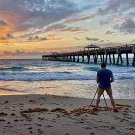
GH5 photo quality - preview vs. stored photo
Orangenz reacted to Trek of Joy for a topic
I'm guessing you're shooting raw. What you see in the EVF and on the LCD is a processed version of the raw. If you shoot a jpeg it should be pretty much identical outside of how your monitor is calibrated. If you're shooting raw it'll be flatter and less sharp when viewed on a computer. When you process it, then you can replicate the look you see in the camera. Chris1 point -
Please Andrew, if you can talk to panasonic people, ask for an "anamorphic Ibis mode" (where there is no roll axis movement of the sensor) because it is so bad for the vertical alignement of the scopes.1 point
-
Panasonic GH5 and G7. I replaced GH4 and G6 (both great cameras!) and had BlackMagic Pocket and Micro, some Canon etc... but the Lumix are the camera I like most. I recently used the RED Scarlet W, amazing camera, but I'm more then happy with the easy GH5 with V-LogL1 point
-
I feel like I need a drink just from reading this thread!1 point
-
I think Ethan is referring to the choice of EF mount over M43 mount Jon. The mount choice makes less and less sense the more I think about it. The single argument for having the EF mount is that it is a more robust option for professional use. Considering how many M43 cameras get used in less than ideal circumstances by everyone from amateurs to hobbyists to professionals with all manner of adapters and all manner and weight of lenses hanging off them, you'd expect there to be a ton of anecdotal evidence of the lack of robustness of the M43 mount wouldn't you? Balanced against that single argument is a world of flexibility (and upgrade path) that Panasonic have closed off. Its not like having the M43 mount would stop people using EF lenses on it. All it achieves is stopping people from using them in a better way.1 point
-
I think this is currently how a lot of people are over the GH5. Not by putting an EF mount on it and offering less reasons for your existing customer base to upgrade to it thats for sure. The EVA1 is going to have to rock people's world image wise because for all people talk about it being a different market, they have to remember that the current safe bet in that market is not Panasonic so its going to take something special to bring people from Canon or Sony. They're not doing it with price thats for sure.1 point
-

The Ability to Improve at Cinematography
IronFilm reacted to Andrew Reid for a topic
It's not the style of writing or anything to do with the advice he's offering, I have no opinion on that... It's the fact I don't want camera and cinematography threads dragged off topic.1 point -

Has Cinema5D lost all credibilty?
IronFilm reacted to EthanAlexander for a topic
I wouldn't even care if they only catered to expensive cameras if they were actually adding to the discussion in meaningful, transparent, and honest ways. Prolost still does some great articles that actually inform. For instance: https://prolost.com/blog/rawvslog?rq=log "raw is not magic" helped me learn a lot about how code values are actually recoded in camera and better understand the pros and cons of raw and log. It's night and day more helpful than cinema5D's "You NEEEEEED raw. What's that? A brand new, expensive camera that shoots raw happens to be affiliate linked in the post and mentioned first thing? That's so weird... Totally not planned, we swear."1 point -
Haha.....if I was that smart I would've accepted that my Mr. Bean demeanour wasn't conducive to being out and about in public wielding heavy equipment ! At least I and the newspaper buying public get to have souvenirs of the mishaps though such as (top left to bottom right) - Apologies for the low res but they're just grabs off the agencies preview page. "The road I crashed the motorhome on" "The last shot the camera on the tripod took before the farmer tried to steal the tripod" "The last shot taken with my Samyang 8mm fisheye before I gifted it to a fan" "The shot taken with my remote camera actually in motion, spinning backwards after being kicked by a police motorcyclist" I did a few stages of Lance's ill advised comeback Tour but only started covering it more comprehensively from 2012 onwards as there became a market for it in the UK when all of our curiously asthmatic British riders started to win it. So am I. Unfortunately, its not a very big fan of me1 point
-

Panasonic GH5 Review and exclusive first look at Version 2.0 firmware
Emanuel reacted to Andrew Reid for a topic
Yes I really do think a shallow DOF is a poor man's 24p Of the two things that inform the film look they are very important and so if you have faux 24p you better shoot full frame to compensate On the other-hand you can say shallow DOF is overrated as there's a lot of deep DOF stuff which looks cinematic. I shoot with my rare Iscorama 2x ("Centavision" branded but really an Iscorama 42 with 2x stretch) at F5.6 with a gentle roll off to the background, not really a shallow DOF, and I didn't miss the full frame look, and I've shot with the Digital Bolex which had an incredible film like analogue feel to the sensor, the colour, rendering, the whole thing screamed FILM not SMALL CHIP! Even with the ultimate shallow DOF lens, the Leica Noctilux... it isn't the razor thin shallow DOF at F1 that is best about it... the overall rendering, vignetting, bokeh shape at the edges and pop to the contrast is what makes it.1 point -
Glad I ditched Sony completely last month (FS5 A7s etc) and switch back to Panasonic this year1 point
-
Another beautiful RAW vignette by Colby Moore:1 point
-
We -most- have all these incredible 1080p 5.5" phones for a few years now, it just makes perfect sense to use them as a monitor. They have 4/8/10 core processors 2/3/4GB of RAM, and everything that can consist a perfectly good low cost monitor. I am just puzzled how no one has made anything similar yet. Xiaomi/Lenovo and others brands have huge 4100+mAh batteries that last days. They would be able to last a few hours as a monitor with nothing else on, and they cost around 200$ or less. Another positive is that it could be working with various phones/brands, and future ones too. That Ikan monitor is great though (there is an even cheaper Chinese original of this, but it seems it doesn't exist any more). I pledged.1 point



